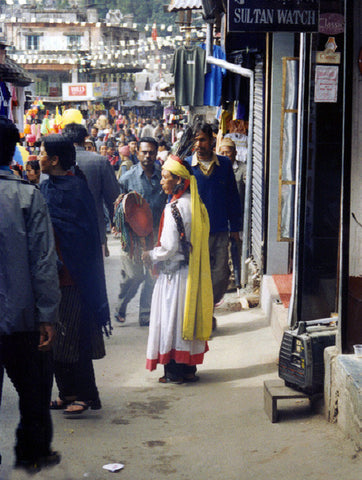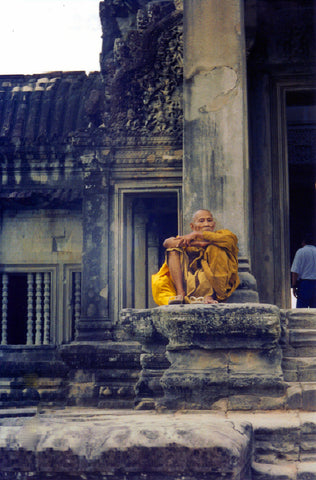Your Cart is Empty
Free Shipping for orders over $49 in Australia, $199 IN NEW ZEALAND/USA/CANADA AND $249 REST OF THE WORLD
Free Shipping for orders over $49 in Australia, $199 IN NEW ZEALAND/USA/CANADA AND $249 REST OF THE WORLD
Add description, images, menus and links to your mega menu
A column with no settings can be used as a spacer
Link to your collections, sales and even external links
Add up to five columns
Add description, images, menus and links to your mega menu
A column with no settings can be used as a spacer
Link to your collections, sales and even external links
Add up to five columns
Our Vision: The Kashgar Philosophy
by Linda Heaphy May 22, 2017
The jewellery, handicrafts and textiles that Kashgar offers for sale are authentic handmade items. This means the pieces were originally made by and to be used by the people who made them, or were handmade for us using traditional methods of construction. Not every item that we sell is an antique. The majority of our items are between 40 and 140 years old, and many are new or were made within the last decade. Where ever possible, age and other provenance information is given in the notes accompanying an item.

A Bontoc tribal woman poses for a photograph on the rice terraces of Banuae. She wears a dog tooth necklace, a sun hat made of fronds and her arms are heavily tattooed to indicate her status within her tribe. The three boxes of matches she holds in her hands are payment for the photograph - she is otherwise forced to buy such luxuries in the local village and is charged an extortionate price for these basic necessities. Photo credit: Kashgar, January 2000.
As we enter the 21st Century planet Earth grows smaller, and communication channels open while physical borders close. Traditional ways of living are ending and many of the world's minority and ethnic cultures are unprepared for life in the new millennium. In accepting superior aspects of the modern world such as health, education advances and women's rights, tribal communities are often forced to accept the less desirable aspects, including the three worst: begging culture, prostitution and servitude to warlords. By maintaining traditional means of handicraft, jewellery and textile production and by selling directly to the western world via dealers like us, tribal communities, particularly the women who tend to be the customary custodians of family and tribal cultural tradition, are empowered both financially and psychologically, and can make informed decisions about which parts of the west they want to incorporate and which they want to reject. The other great benefit of maintaining traditional methods of handicraft and textile manufacture is that these communities have for the most part evolved to live in synchronicity and harmony with their environment. As a result, environmental sustainability and stability is maintained without the imposition of elaborate and expensive management plans by external authorities.
In line with this philosophy, there must be a simultaneous recognition by the west that handicrafts made in this manner will cost more, will not necessarily be made to fit western tastes and will be rarer than items mass produced in Asian factories and sweatshops. The beauty of these items lies in their individuality, their irregularities and their imperfections. When you hold them in your hands or gaze upon them in your home you are engaging in a form of time travel. The sense of peace, harmony and wellbeing that they bestow cannot easily be described. By supporting this philosophy we can all actively help to maintain the diversity of our planet and ensure that the unique nature of these communities and their traditions will endure into the next millennium.

A tribal shaman walks the streets of Darjeeling, offering his religious services as needed. He adheres to a blended philosophy of Chod and Buddhist practices. Photo credit: Kashgar 2002.
These are our products and this is our philosophy
Leave a comment
Comments will be approved before showing up.
Also in Press
Articles
About the Author
- Linda has a Honours degree in Marine Biology and a PhD in Ecology from the University of NSW, Australia. She has travelled extensively and is a passionate writer on subjects as diverse as the role played by women throughout history, tribal communities and their customs, symbology and ethnology, talismans and their history. Occasionally she also writes about her travel experiences, her new life on a 25 acres in the Northern Rivers region of northern Australia and her black miniature poodle Phoenix. She is currently writing her first book on talismans.
About Us
-
The Kashgar Philosophy

Kashgar began through a love of travel.
In 1989 my father Bernard packed in his house painting business and set off for two years on a backpacking trek to the remotest corners of the world. When he finally arrived in the oasis city of Kashgar, China, he was so impressed with its history that he decided to start a new life collecting and selling exotic goods from all over the world. For 2000 years the legendary city of Kashgar was a melting pot of ideas and a key trading post on the historic Silk Road. It was this unique combination of philosophy and trade that my father wanted to recreate at home.
Starting in markets in 1991, he opened his first store in the Sydney suburb of Newtown in 1994. I gave up my own career as a government scientist to join him in 2000 and soon convinced my partner Ian to join us in what was to become the Family Business.
Today our version of Kashgar stocks a hugely diverse range of furniture, rugs, textiles, antiques, handicrafts and jewellery sourced from over twenty different countries including India, Nepal, Tibet, China, Thailand, Burma, Laos, the Philippines, Vietnam, Mexico, Peru, Turkey, Palestine, Syria, Afghanistan and Turkmenistan. Our collection includes contemporary and tribal silver and gold jewellery, a unique range of headhunting curios, antique Buddhist relics and a collection of one-off necklaces, earrings and bracelets that I design and create myself using the beads and jewellery making techniques of ethnic minorities from around the globe.
Kashgar is a philosophy as well as a store. We are committed to supporting traditional artisans and small village communities by selling authentic handcrafted goods which are personally collected by us. By supporting traditional methods of design and production we hope to encourage local cottage industries which have a low impact on the environment and help ethnic minorities maintain their self-sufficiency into the 21st Century. We are particularly committed to assisting women around the world and to this end have worked with several organisations including the Hua Bin Women's Union of Vietnam, the East Timorese Women's Association and Tikondane in Zambia. Time honoured means of craftsmanship and traditional ways of life are disappearing as people all over the world give up their identity in favour of jeans and T-shirts. We see our trade as a means of staving off the inevitable encroachment of the 21st century, assisting communities to decide for themselves which parts of the western world they wish to incorporate (medicine, education) and which they wish to reject (prostitution, drug production, begging and servitude to warlords). We encourage our customers to think of the handicrafts and artifacts they buy from us as an investment: a piece of history and a way of life that may soon be gone forever.
Kashgar has recently closed its retail outlet and gone completely online.
In the past our pieces appeared in many movies including The Hobbit, Mission Impossible 2, Queen of the Damned, Scooby Doo, Moulin Rouge and Wolverine, and in many televisions series, as well as in plays, commercials and exhibitions. We've found special pieces for individual customers as well as for film sets, event management companies, hotels, businesses, consulates and embassies. The uniqueness of our stock means that we are also very appealing to interior and fashion designers with a taste for the exotic.
There is something for everyone at Kashgar - collectors, the curious, those looking for a special present or for something unique to adorn the home. Most of our items are one-off specialties; other pieces we only stock in small quantities so as to continuously offer a wide and ever-changing range of interesting products. We are also packed with ideas for decorating home and work premises that will challenge your established concepts of design and storage.

Please enjoy - Linda Heaphy
Become a Kashgar nomad and join our mailing list...
Sign up to get the latest on sales, new releases and more …



